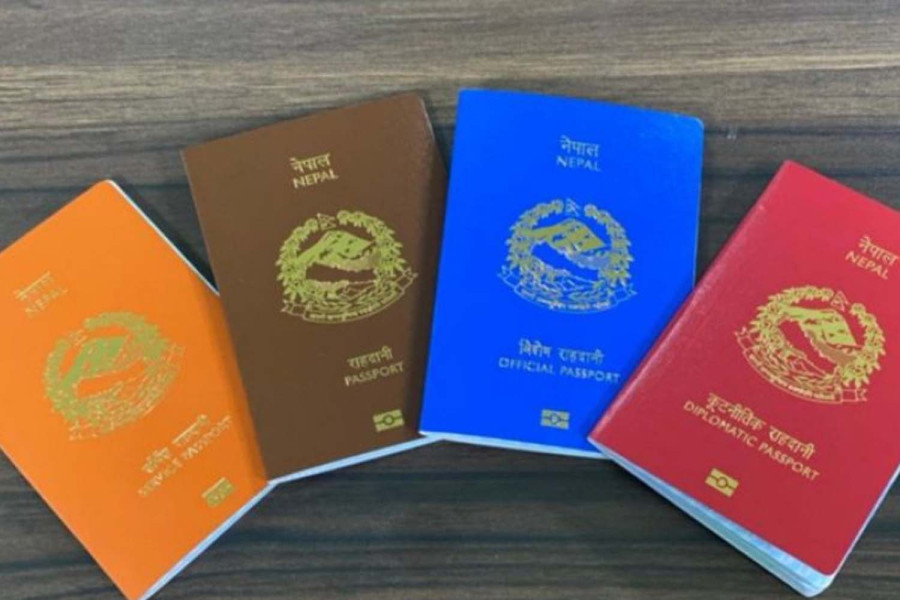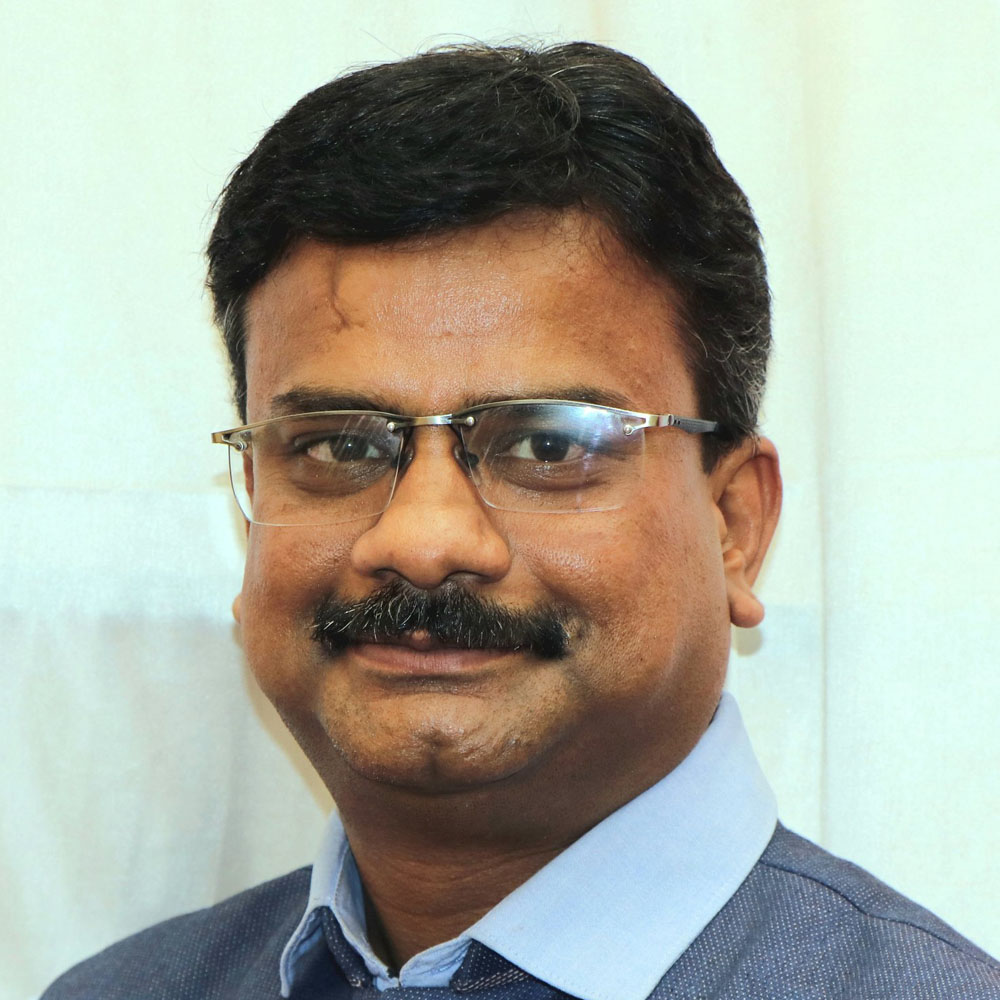National
Nepal has a security press. Then why are passports printed abroad?
Delays, corruption, and unfinished facility force the country to look away for passports.
Rajesh Mishra
Passports are vital identification documents for any citizen wishing to travel abroad. For Nepalis, a passport not only serves as an individual’s identity overseas but also reflects the identity of the state. Yet, Nepal continues to outsource passport printing to foreign companies. This raises a critical question: why can’t Nepal print its own passports, despite having its own security printing infrastructure?
Why aren’t passports printed in Nepal?
To reduce reliance on foreign suppliers for key government documents such as passports, smart licenses, postage stamps, national ID cards, banknotes, checkbooks and excise stickers, Nepal established the Security Printing Centre. This centre oversees the establishment of a national security printing press—commonly referred to as the "security press." However, despite years of preparation and millions in investment, the press is not yet operational.
The initiative faced a major setback when the then executive director of the Security Printing Centre was convicted by the Special Court of corruption related to the procurement of the press. He received a two-year jail sentence and a fine of over Rs254 million, with three others also convicted. The facility, currently under construction in Panauti of Kavrepalanchok district, remains incomplete. Last year, the Department of Passports formally asked the Security Printing Centre whether it could take over the task of printing passports. The response, sent five months later, was a no: the facility lacked the technical capability and production capacity to meet the department's requirements. “With no alternative domestic option, the department had little choice but to issue an international tender,” said Tirtha Raj Aryal, director general of the Department of Passports.
How does the passport procurement process work?
Passport is an essential travel document issued by the government. Applicants undergo a multi-step administrative process through official channels before receiving their passports. Nepal currently issues electronic passports (e-passports), which require a complex printing, personalisation and distribution system. Because this system cannot be handled domestically, the government floated an international tender to procure both the blank booklets and the technology systems needed to process and issue them.
On June 27, 2023, the government decided to procure passports sufficient for the next five years via international bidding. The number of passports in stock had been declining, prompting the decision. In compliance with the Security Printing Act 2024, passport production must use materials and techniques that are difficult to counterfeit, including specialised paper, ink and security marks.
A procurement committee led by Aryal prepared a two-package plan for the acquisition: one package would include pre-enrollment, data processing and the distribution system; the second would cover the physical passport booklets and personalisation technology. On September 16, 2024, the Ministry of Foreign Affairs approved the plan. An international call for bids for both packages was issued on November 28. Aryal claims the bidding process adhered strictly to public procurement law, ensuring an open, non-discriminatory competition.
Why is passport procurement always controversial?
Nepal’s passport procurement process has been repeatedly mired in controversy. The first attempt to procure e-passports was made in August 2019, but the tender was cancelled due to procedural flaws. A second tender in February 2020 was also scrapped. It wasn’t until a third attempt in October 2020 that French company IDEMIA won a contract to supply 2 million passports. Subsequent orders for an additional 300,000 first and 2.8 million passports later were placed with IDEMIA without competitive bidding, raising eyebrows. Previously in 2010, the Department of Passports had awarded a similar contract to Oberthur Technologies, which IDEMIA later acquired.
What triggered the current round of disputes?
As the bidding process began, a number of complaints were filed with various agencies, including the Commission for the Investigation of Abuse of Authority (CIAA), the Office of the Prime Minister and the State Affairs and Good Governance Committee of the House of Representatives. The complaints alleged that the tender’s terms favored the IDEMIA, which has supplied Nepal with over 12 million passports since 2010.
Bidders were initially given 45 days to respond. After intervention by the Public Procurement Monitoring Office, the deadline was extended and several clauses in the bid documents were revised. When the final deadline arrived on February 21, 2025, three companies submitted proposals for Package 1 and four for Package 2.
On the technical front, both IDEMIA and German firm Muehlbauer qualified for Package 1. For Package 2, four companies—IDEMIA, Muehlbauer, Germany’s Veridos and Poland’s PWPW—passed the technical screening. After evaluating financial bids, the committee recommended awarding Package 1 to Muehlbauer and Package 2 to Veridos. Letters of intent were issued to both companies on June 5, triggering a fresh round of disputes.
What is the latest dispute?
IDEMIA, which failed to win either package, submitted a formal request for review to the Public Procurement Review Committee on June 22. In its complaint, IDEMIA alleged that the German bidders had failed to meet technical specifications—such as the requirement for blade servers—and that their production capacity (6,000 passports daily at 1,000 per hour) was insufficient.
IDEMIA also challenged the use of the exchange rate from the date of the technical bid opening rather than the financial bid opening, arguing that the discrepancy cost the government Rs280 million. Additionally, IDEMIA claimed that its cross-package discount offer was ignored. It argued that if both packages were awarded to a single bidder, the combined cost would be lower than what the two selected vendors had quoted separately—by about Rs 7.1 million.
At the same time, advocate Kusum Kishor Koirala filed a writ petition with the Supreme Court on June 30, alleging irregularities in the procurement process.
What did the review committee and court decide?
On July 21, the Public Procurement Review Committee ruled in favour of the Department of Passports, declaring the procurement process lawful and rejecting IDEMIA’s claims. The committee also ordered to seize IDEMIA’s bid bond worth approximately $578,000 and deposit it into the state treasury.
Chaired by Raghuram Bista, with members Rohit Kumar Bisural and Thaneshwar Gautam, the review committee stated that IDEMIA’s arguments lacked sufficient grounds. IDEMIA challenged the ruling at the Supreme Court, but the court registrar rejected its petition, stating that a similar petition was sub judice. In that pending case, the court had earlier declined to issue an interim order to halt the procurement.
Where do things stand now?
With the review committee upholding the procurement process and no interim order from the court, the Department of Passports has moved ahead with the project. It has signed agreements with Veridos for Package 2 and Muehlbauer for Package 1. Both companies are required to start delivering services by March 9, 2026.
How much will a passport cost and how much will the public pay?
The winning bids totaled approximately Rs7.66 billion. Of this, Rs 1.55 billion covers the data processing and distribution systems under Package 1, while Rs6.11 billion covers the blank booklets and personalisation equipment under Package 2. According to the department, a passport costs $8.61.
Under Nepal’s Passport Regulations, a 34-page passport booklet issued through a District Administration Office costs Rs5,000 and a 66-page booklet costs Rs10,000. If obtained directly from the department, the fees range from Rs12,000 to Rs20,000 depending on page count. Fees differ by region when passports are issued by foreign-based Nepali missions—for instance, 150 to 200 US dollars in North and South American countries, Australia, New Zealand, Japan, South Korea and Hong Kong; 50 to 100 US dollars in Gulf countries; and 80 to 170 euros in Europe and Russia. Children under 10 pay half the adult rate.
Is the procurement cheaper than before?
Department claims per passport cost decreases now. Previously, the unit cost per passport was 10.13 US dollars. With the new contracts, it drops to 8.61 US dollars—a savings of 1.52 US dollars per passport. With 6.4 million passports being procured, the department claims the total savings will exceed Rs1.35 billion.
What happens to the existing equipment?
IDEMIA had previously supplied three personalisation machines to the department, along with the current data processing system. These can be used for another three years, but only with continued technical support and maintenance from IDEMIA. Director General Aryal said the company’s quoted support costs were too high and that attempts to negotiate lower prices were unsuccessful. As a result, the department chose to switch suppliers. The machines, worth over Rs540 million, will likely be auctioned off. The IDEMIA side, however, claimed that it offered to provide continued support but the department declined the offer.
Is a passport shortage looming?
The Department of Passports has initiated a new procurement process after the number of passports supplied under the previous contract began to dwindle. The government had started distributing electronic passports (e-passports) in 2022, and since then the department has purchased 5.1 million e-passports. At present, only around 400,000 passports remain in stock, out of which approximately 60,000 have been deemed defective. That leaves about 340,000 usable passports, which the department estimates will last until October-November, thinking that the demand likely dips during the Dashain and Tihar holidays.
The department currently issues around 5,000 passports per day on average. As the newly contracted suppliers are scheduled to begin deliveries only from March, 2026, there is a high chance of a supply shortfall starting in November. However, Aryal insists that the department will not allow a shortage to occur. He says arrangements are being made to continue sourcing passports from the current supplier, IDEMIA, to cover the interim period.




 12.12°C Kathmandu
12.12°C Kathmandu















